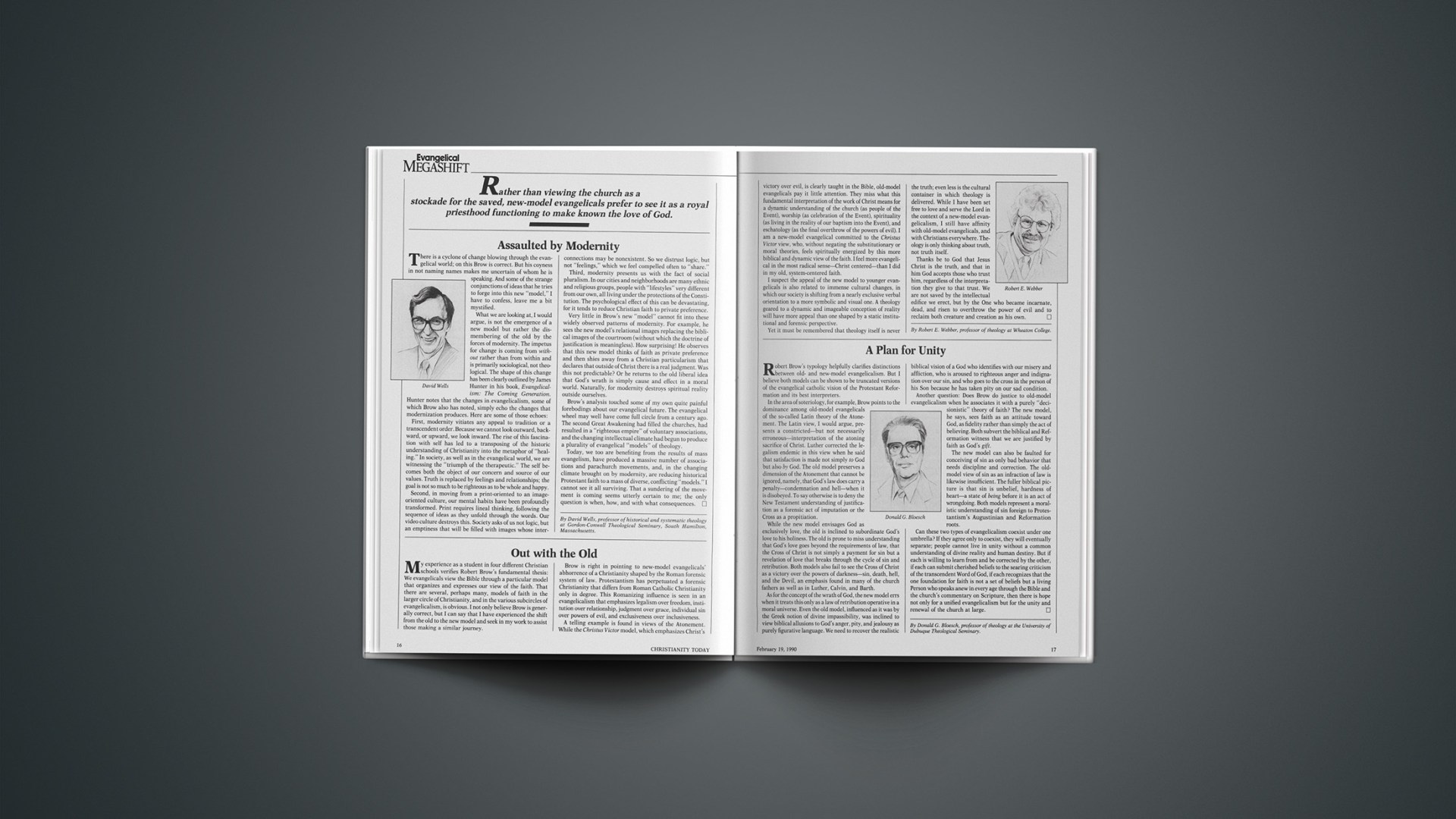There is a cyclone of change blowing through the evangelical world; on this Brow is correct. But his coyness in not naming names makes me uncertain of whom he is speaking. And some of the strange conjunctions of ideas that he tries to forge into this new “model,” I have to confess, leave me a bit mystified.
What we are looking at, I would argue, is not the emergence of a new model but rather the dismembering of the old by the forces of modernity. The impetus for change is coming from without rather than from within and is primarily sociological, not theological. The shape of this change has been clearly outlined by James Hunter in his book, Evangelicalism: The Coming Generation. Hunter notes that the changes in evangelicalism, some of which Brow also has noted, simply echo the changes that modernization produces. Here are some of those echoes:
First, modernity vitiates any appeal to tradition or a transcendent order. Because we cannot look outward, backward, or upward, we look inward. The rise of this fascination with self has led to a transposing of the historic understanding of Christianity into the metaphor of “healing.” In society, as well as in the evangelical world, we are witnessing the “triumph of the therapeutic.” The self becomes both the object of our concern and source of our values. Truth is replaced by feelings and relationships; the goal is not so much to be righteous as to be whole and happy.
Second, in moving from a print-oriented to an image-oriented culture, our mental habits have been profoundly transformed. Print requires lineal thinking, following the sequence of ideas as they unfold through the words. Our video culture destroys this. Society asks of us not logic, but an emptiness that will be filled with images whose inter-connections may be nonexistent. So we distrust logic, but not “feelings,” which we feel compelled often to “share.”
Third, modernity presents us with the fact of social pluralism. In our cities and neighborhoods are many ethnic and religious groups, people with “lifestyles” very different from our own, all living under the protections of the Constitution. The psychological effect of this can be devastating, for it tends to reduce Christian faith to private preference.
Very little in Brow’s new “model” cannot fit into these widely observed patterns of modernity. For example, he sees the new model’s relational images replacing the biblical images of the courtroom (without which the doctrine of justification is meaningless). How surprising! He observes that this new model thinks of faith as private preference and then shies away from a Christian particularism that declares that outside of Christ there is a real judgment. Was this not predictable? Or he returns to the old liberal idea that God’s wrath is simply cause and effect in a moral world. Naturally, for modernity destroys spiritual reality outside ourselves.
Brow’s analysis touched some of my own quite painful forebodings about our evangelical future. The evangelical wheel may well have come full circle from a century ago. The second Great Awakening had filled the churches, had resulted in a “righteous empire” of voluntary associations, and the changing intellectual climate had begun to produce a plurality of evangelical “models” of theology.
Today, we too are benefiting from the results of mass evangelism, have produced a massive number of associations and parachurch movements, and, in the changing climate brought on by modernity, are reducing historical Protestant faith to a mass of diverse, conflicting “models.” I cannot see it all surviving. That a sundering of the movement is coming seems utterly certain to me; the only question is when, how, and with what consequences.
By David Wells, professor of historical and systematic theology at Gordon-Conwell Theological Seminary, South Hamilton, Massachusetts.










